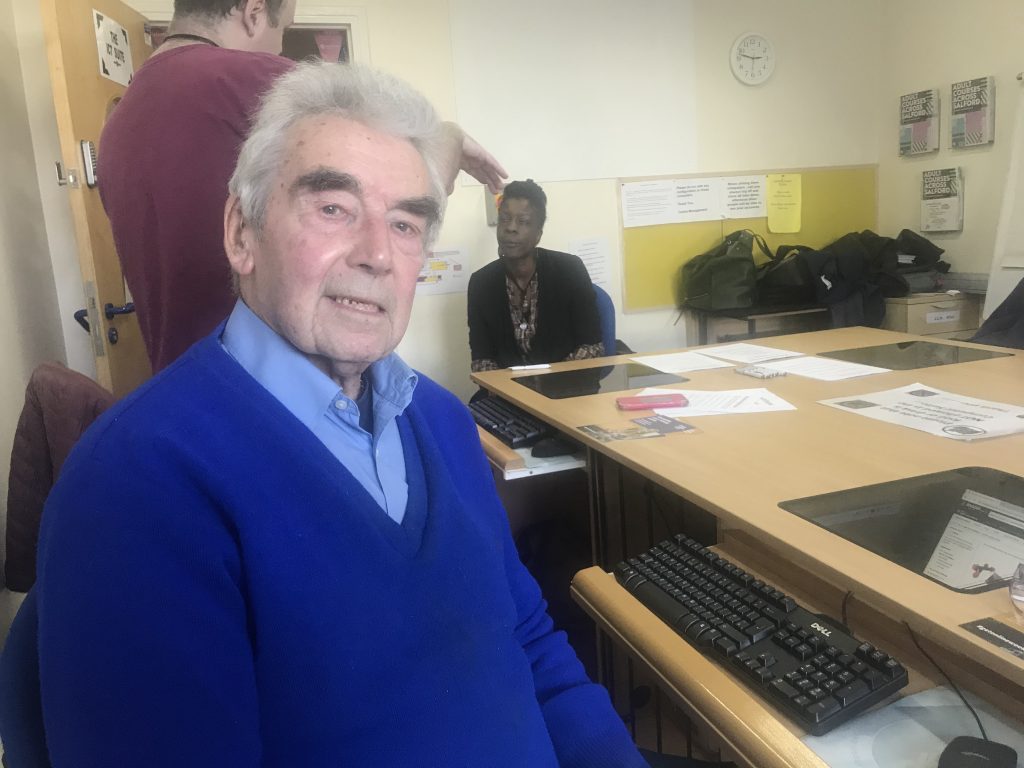
A Salford author is using computer drop-in sessions to retrieve the final quarter of a novel he wrote on a floppy disk 30 years ago.
After emigrating to South Africa in the 1980s, Gordon Wilson wrote a story about a man who tried to use financial secrets to swindle the stock market for his own financial benefit.
And now a regular at the Langworthy Cornerstone Centre in Salford, ex-Royal Marine Commando Mr Wilson attends digital workshops to practice his online skills.
He said: “It’s a miracle that I’ve managed to save it all this time. I’ve got three quarters of the story but I’m missing the last quarter on the floppy disk and I’m trying to bring it back to life.
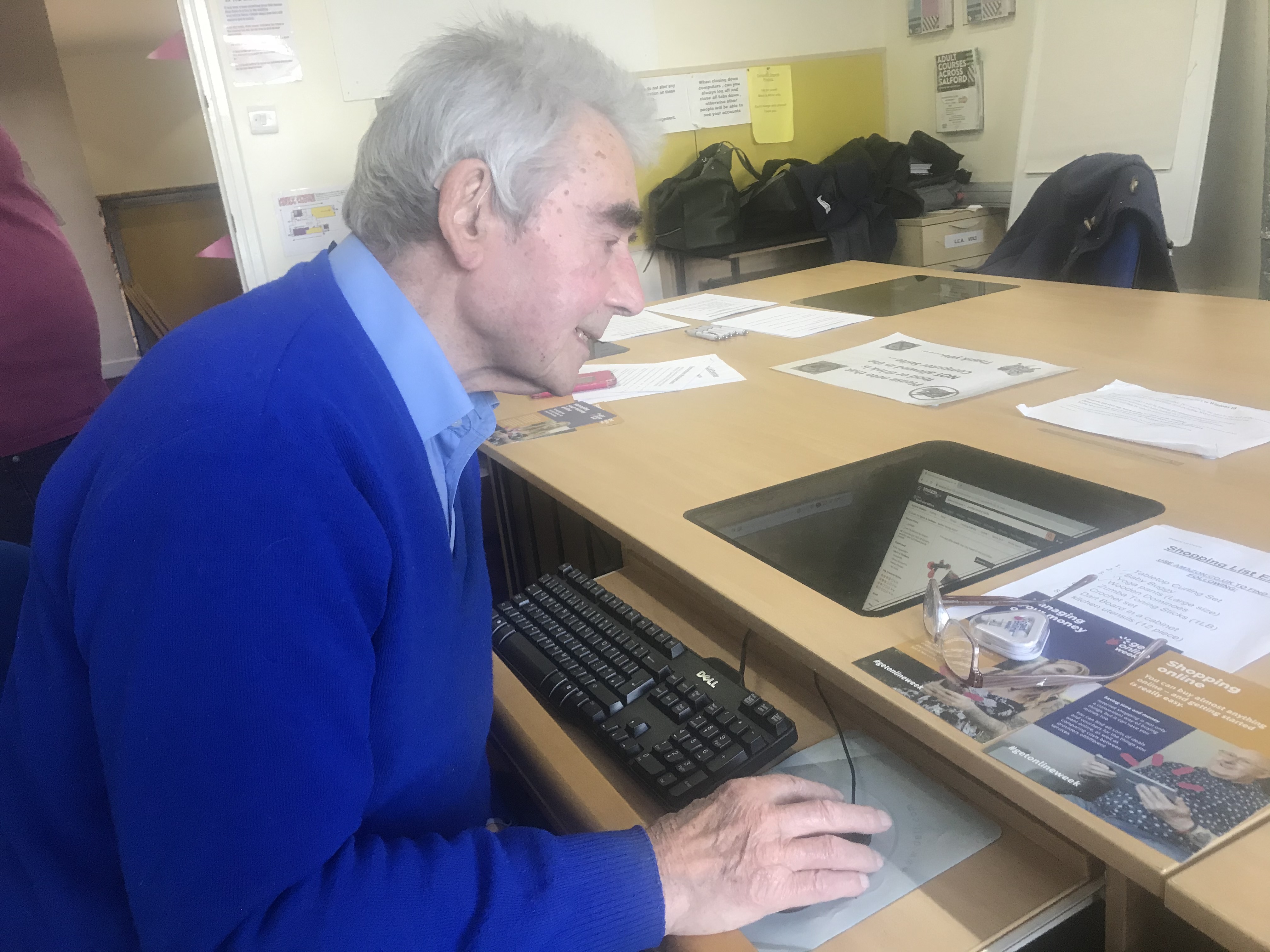
“I’m having problems as the format won’t read the word processor items and that’s what I’m trying to do at these sessions.”
The former Salford University student, who has had work published in the past, was speaking at a Digital Phoenix Society drop-in event, which was part of Get Online Week 2019 – a flagship campaign to help 15.2 million people in the UK to make full use of the internet.
“With me being at an elder age, it’s beneficial as it’s a chance to get into the modern world, as such.
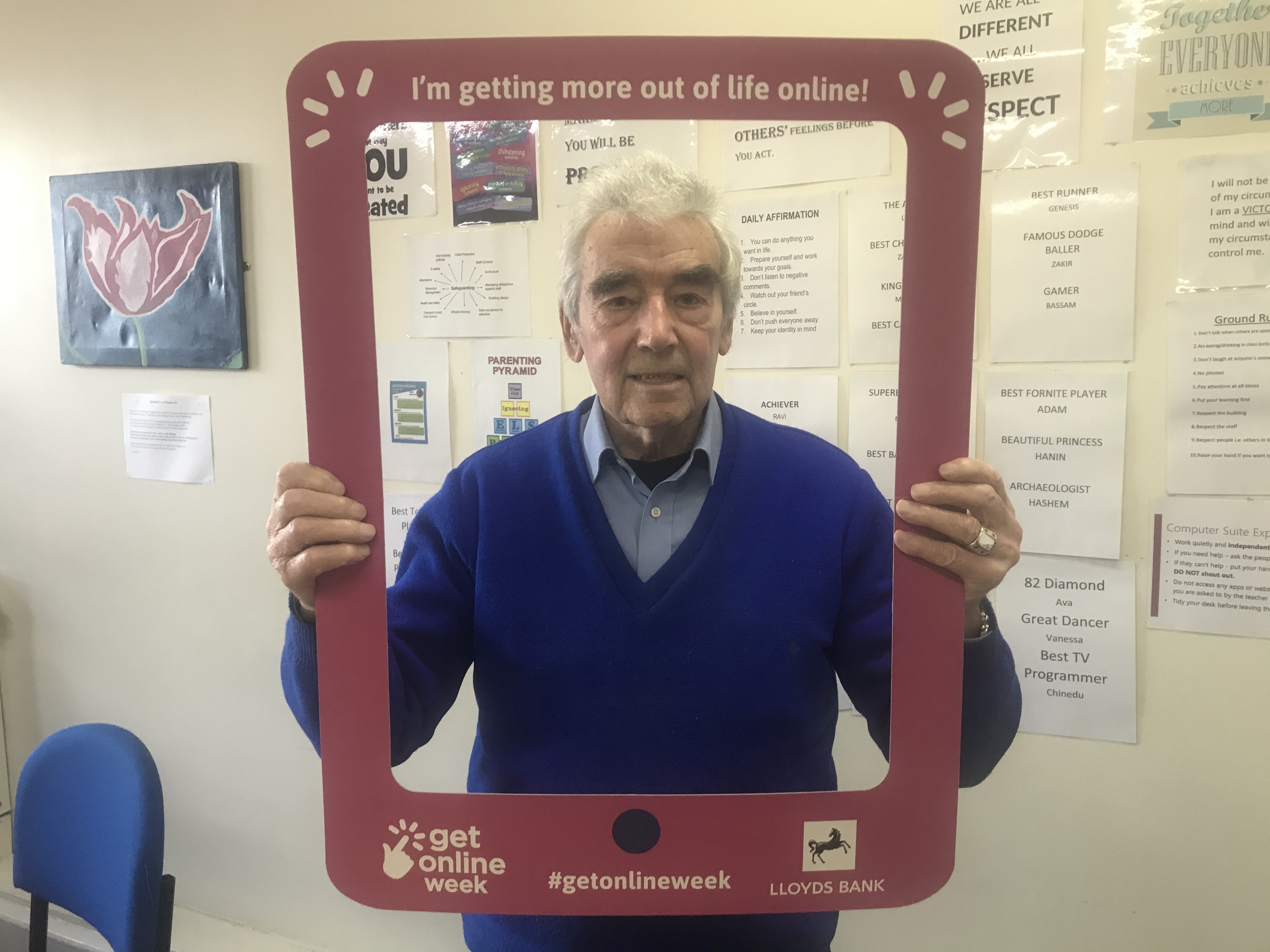
“I think you should know how to use online and what is going on in the modern world – you can’t be ignorant.”
The group was set up in April by Langworthy Centre volunteer Alan Worthington, who was inspired to support people who have mental health conditions.
The Eccles-born organiser said: “The idea came from myself volunteering for years. I noticed that a lot of the computer groups are more generalised and I wanted to give specialised support to those who need it.
“It’s a nice, quiet and relaxed environment where people, who may have anxiety or are depressed, can come in and leave when they please.
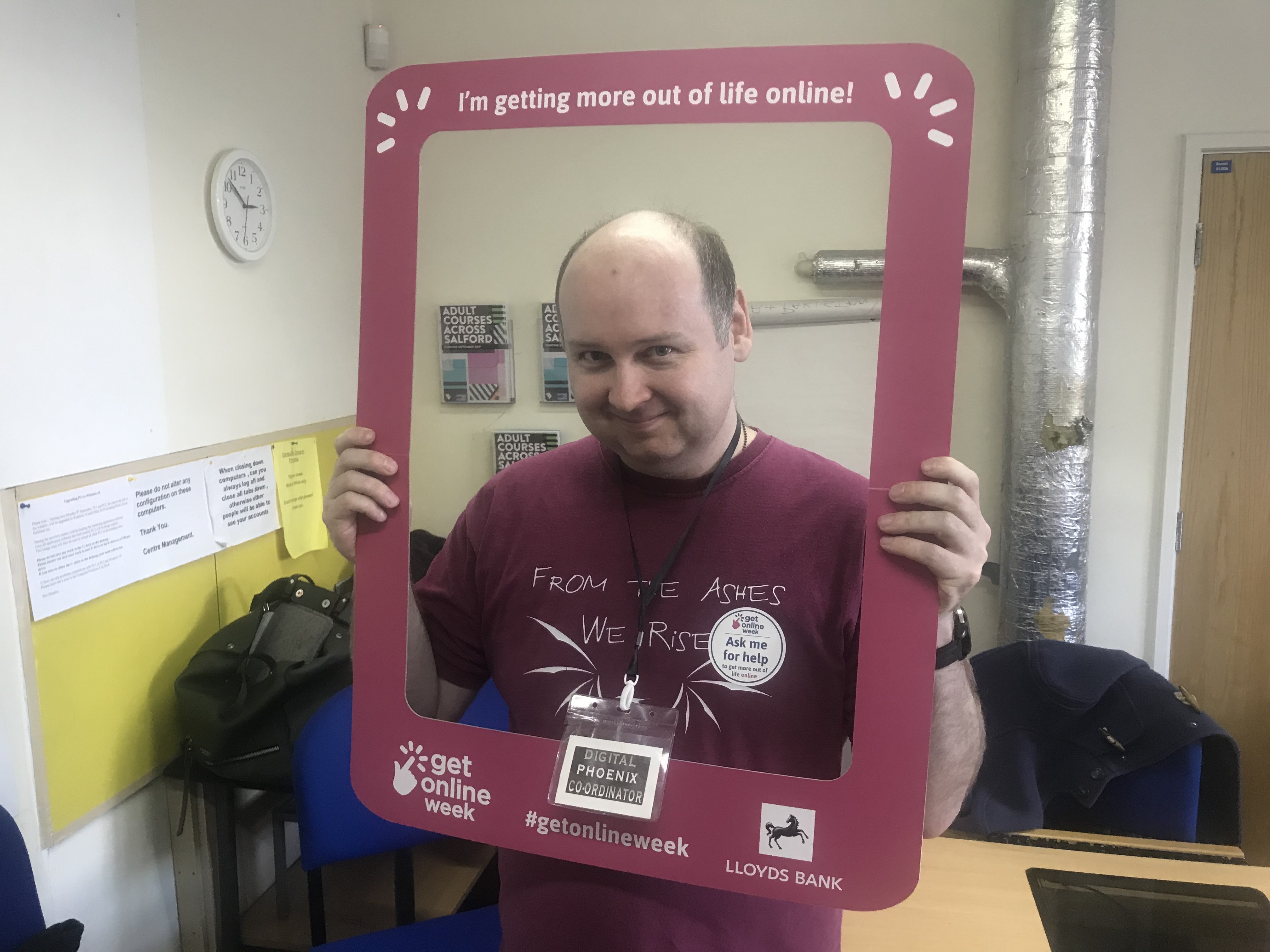
“Every week is Online Week for me, but my taster sessions are designed to let people have fun with online.”
Part of Get Online Week is Salford City’s Council ‘Digital You’ programme, which aims to get 8,000 Salford residents online experience by 2020.
And one of the organisations that works with the council is the Good Things Foundation.
Surriya Walters, Digital Inclusion Manager for Salford at Good Things Foundation, said: “My role is to reach the most excluded people to help them develop their digital skills, and we do that by engaging with community organisations.”
It is estimated 30,000 Salford residents are digitally excluded and they are more likely to be older, unemployed or in poverty.
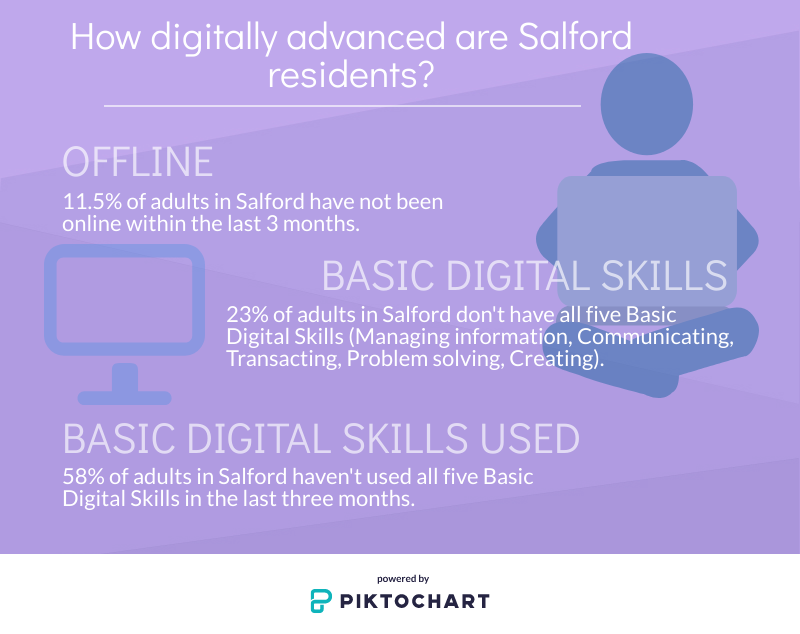
Ms Walters added: “Organisations across the country can join and become an online centre network completely free. That means they get free online resources and are able take part in campaigns, like today.”
Thanks to FIT ltd, Phoenix Society for today @langworthycornerstone always interesting to hear learners experiences and the reasons why now is time to become digitally active @getonlineweek @Online_Centres @SalfordCouncil #makeitclick #DigitalSkills @Saralyse1 @alastairhancock pic.twitter.com/BbJk45d05j
— Surriya (@SurriyaGTF) October 17, 2019
The event at the Cornerstone Centre entailed volunteers learning how navigate a website, as well finding items in a shopping exercise.
Langworthy local and learner, Bibiana De Sousa, commented: “I really enjoy it and benefit from it. Today, everything is online so if you don’t know the basic skills you can’t do anything.”
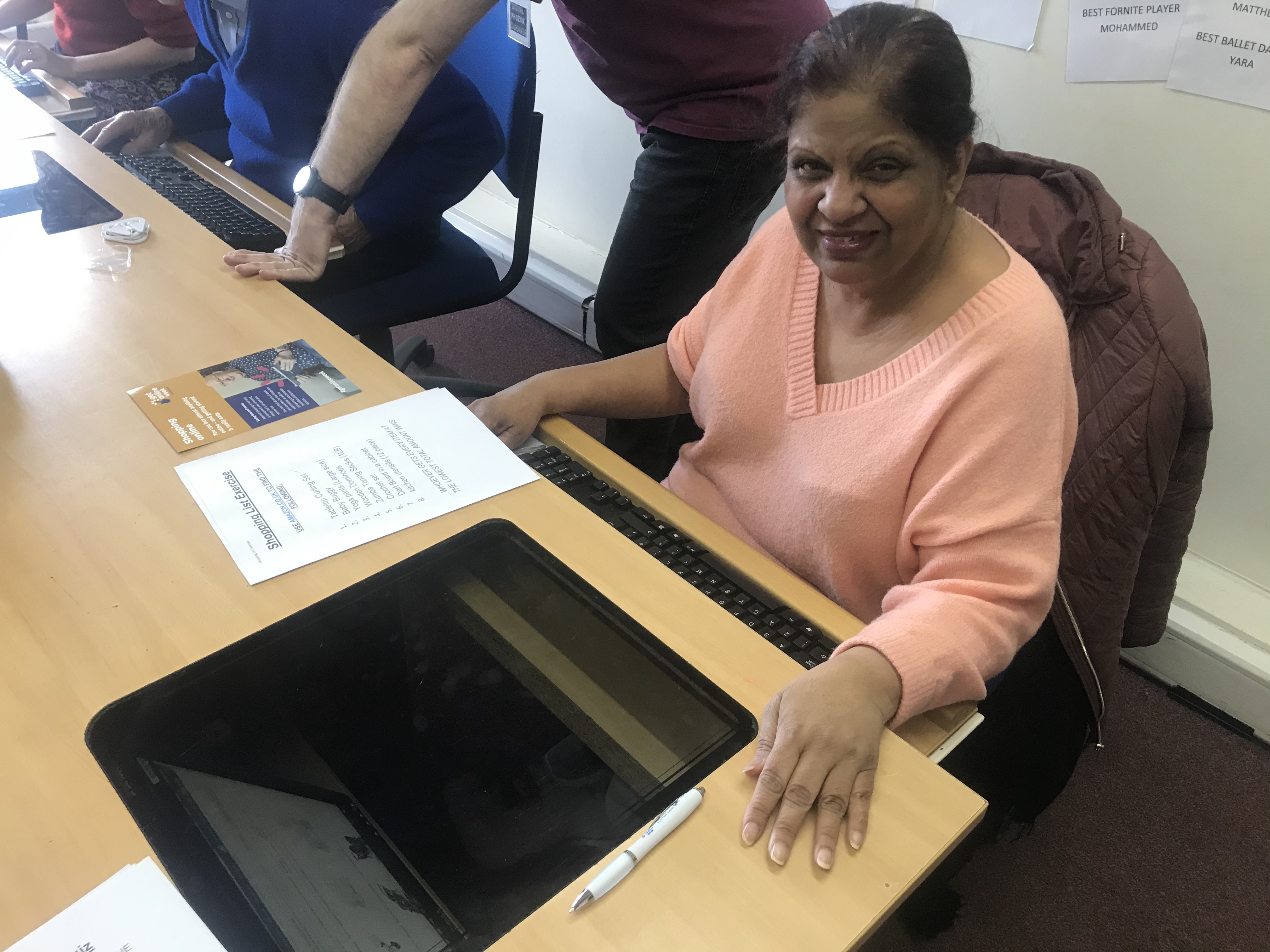
Over 30 centres have now been recruited into the Salford network by Good Things Foundation, with 14 of those being community organisations.
Ms Walters added: “We all have a responsibility to make sure nobody is left behind and to get the most out of being online. We’re over half of the 8,000-mark set by Salford City Council.
“I’ve come to the realisation that this is one of the greatest exclusions going. Digital is a global issue and if you do not have the skills to access something then you are not able to improve your life chances and choices.”
She also spoke about the development of Salford’s MediaCityUK 200-acre mixed-use property development, which has attracted huge investment from media organisations since its opening in 2011.
“High scale digitalised programmes and projects are taking place (in MediaCityUK) and it is attracting people from all over the world.
“What that does do, unfortunately, is create a two-fold double edged sword in terms of for the local people, who have always lived and worked within Salford – and with Salford being one of the 10% most deprived areas in the UK – it sets a bar that is not reachable for some to have aspirations of potentially going into employment at Media City.”
For more information on Salford City Council’s ‘Digital You’ programme and the Good Things Foundation, click here.














Recent Comments